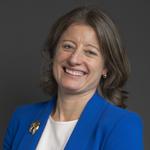Rare Cancers: Diagnosis
(asked on 24th March 2025) - View SourceQuestion to the Department of Health and Social Care:
To ask the Secretary of State for Health and Social Care, what steps he is taking to reduce the late diagnosis of (a) rare and (b) less common cancers.
Improving early diagnosis rates is a key priority for the Government for all cancer types, including rare and less common cancers. We are improving public awareness of cancer signs and symptoms, streamlining referral routes, and increasing the availability of diagnostic capacity through the roll-out of more community diagnostic centres.
NHS England runs Help Us Help You campaigns to increase knowledge of cancer symptoms and address barriers to acting on them, to encourage people to come forward as soon as possible to see their general practitioner. The campaigns focus on a range of symptoms as well as encouraging ‘body awareness’ to help people spot symptoms across a wide range of cancers at an earlier point.
We are also committed to improving waiting times for cancer treatment, so that people with cancer, including rarer cancers, can get access to the care they need more quickly. The National Health Service has delivered an extra 40,000 operations, scans, and appointments each week, as the first step to ensuring early diagnosis and faster treatment.
Finally, the National Cancer Plan will include further details on how we will improve outcomes for cancer patients, as well as speeding up diagnosis and treatment, ensuring patients have access to the latest treatments and technology. The plan will seek to improve every aspect of cancer care, to improve the experiences and outcomes for people with cancer, including rare and less common cancers.

